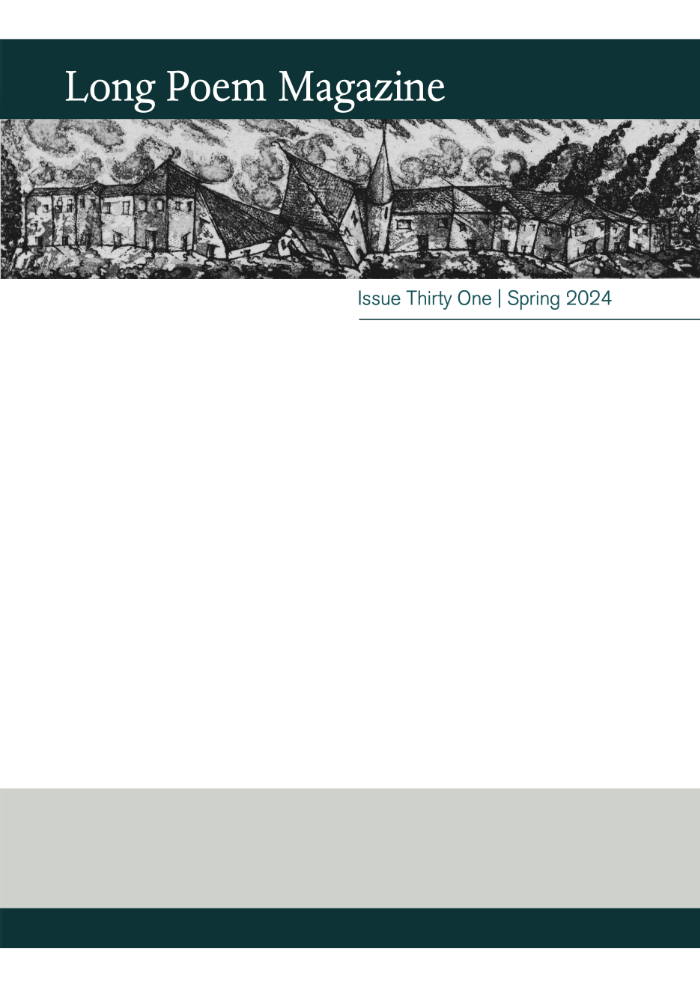Are you reading this from home, on a bus, a train, by a fireplace with a nice cup of tea, in the past, future or interim – are you concentrating, concerned, dazed, amiss, sidelining, uncertain, bemused, weary, fulfilled? Can you focus, set aside? How many front rooms, doors, pathways, vacations, longings – how long ago? I wrote this some time ago when there/now was/had still some time to go.
In Di Slaney’s ‘The Hahnemann Triptych’ the first Frau Hahnemann had ‘eleven children/raised in twenty homes in twenty years.’
I lived in a road, an avenue, a crescent, a hill – a basement, an attic, a midden, a cul-de-sac, the end of a terrace, under a gabled roof, played hop-scotch, ring-a-roses, pick-a-sticks, two-ball against the wall – so many doors opened and closed.
Philip Gross’s ‘House’ ‘…has its own mind. Some nights/you can hear it thinking. ’, ‘House and my body sitting down together’, ‘How deep that drop is / inwards’, ‘– I’ve been back once too often / to home after home – that what House leaves in us can last a lifetime.’ ‘House, were you here in the world before us?’
There’s nothing we can do about time passing, as Tim Dooley reminds us in ‘Questions of Aesthetics’:
‘. . . buttered fingers of toast dripping
with the rich yolk tasted minutes ago
already losing itself to the past.’
When Anna Robinson’s Uncle Vic died (Stuff’), a ‘very special and often contradictory man’, a hoarder, with ‘a fear of sleeping anywhere else’, she cleared out his flat:
‘Fifty-plus years worth of bills, medical letters . . . all filed neatly . . . shoe box after shoe box . . . seven full sized pistols that are, in fact, cigarette lighters . . . a piece of Mount Etna . . . an Oxford cobble. . .’
Johannes Anyuru (‘Time: A Song about the Walls of Troy’, translated by Bradley Harmon) transplants the setting of his poem from ancient Troy to immigrant neighborhoods of modern-day Sweden, foregrounding ‘The mothers / carrying their endless hearts of laundry in their embraces / like white bonfires in the blue nightfall (the flutter of robes) / and their children, just getting home. . .’
Meira Cook’s ‘Tender Hooks’ is an attempt to capture her own ‘elusive mother in language’ – the elusive language of the ‘a˙pos˙tro˙phe’ :
‘With each quarter-turn of apostrophe the mother becomes more remote, turned away from. . . ’
‘I’m waiting, she would say, looking everywhere, for her disappearing daughter. . .’
‘tapping (on doors, on windows, on the thin wooden lid/of her mortality). . .’
‘When I was your age’, says Maria Jastrzebska’s refrain (‘In the Jaws of a Dog), ‘we kept secrets the way / people kept budgerigars. . . there were some things /not even the dead / spoke of. . .’ Maria grew up in the shadow of war.
The poem ‘Passage’ exemplifies a relationship between four poets (Sinéad McClure, Cáit O’Neill McCullagh, Maeve O’Reilly McKenna, Jan Claire Starkey)collaborating in verse – a community, a supportive unity, ‘a composition of women’s voices […] layering and mixing the threads’:
‘With my hands resembling my mother’s
I begin to erase the poem
[. . .]
I could have been you 20 years ago
I could have been me 20 years ago
As a magazine, we are a community – launches are indeed a pleasure and a privilege: meeting, chatting, listening, bringing together various ages, nationalities, cultures, languages – the poem transcending the page.
LINDA BLACK
